Interview: “The Whole Mining Law Is Aimed At Protecting The Interest Of Cameroon”
- Par Eulalia AMABO
- 14 Nov 2023 14:06
- 0 Likes
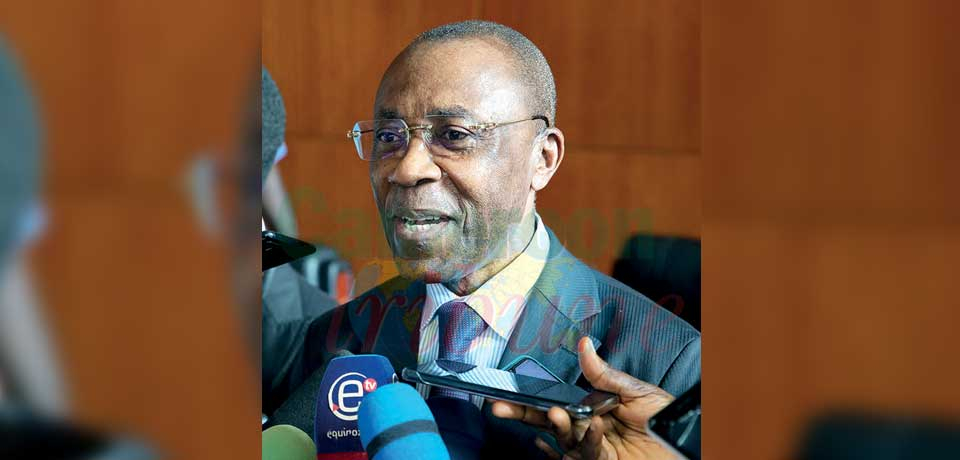
Prof. Fuh Calistus Gentry, Interim Minister of Mines, Industry and Technological Development.
Fourteen projects were identified in the mining sector and three have already started operating. What will happen next?
The President of the Republic announced in 2022 that we are going to move into a production mining. He announced three projects which are to start, projects which I can give details of their state of advancement. The Lolabe iron project by the company SINOSTEEL is fully in action. SINOSTEEL has mobilised almost 80 per cent of the complementary equipment which is going to come over. There is also a mission from our Ministry going to China and Brazil to see effectively that this equipment is of standard and they measure to the norms of mining in the world. We also have the Grand Zambi project which has advanced heavily.
We have ECROTIA which is doing infrastructure. The company has taken upon itself to do seven kilometres of road. Already they have put in place equipment which will be used for processing the ore. In that respect, we can tell you that anybody going to Grand Zambi, Campo will see the company in full activity. The road linking Campo to the Kribi Deep-sea port is also under construction though there are some issues. Effectively, we also have the Mbalam project and the Geovic project. These projects have some issues which are linked to restructuring. As soon as these projects are restructured, they will join these other two as projects that have started. And of course, we have the Colomine project which has effectively started and we are going to inaugurate the gold treatment plant one of these days. We want to migrate this project into a close system. So we can say, short term projects we have five which we can tell you within 2024, all of them should start. But we have two effectively that have started and are ongoing presently.
Concerning discrepancies between stakeholders, what are some of these major differences and what are the possible solutions?
I think a particular case we can cite is the project of Geovic where we have two shareholders who have a lot of misunderstandings. To the best of our knowledge, if these two shareholders could come into a consensus, that is the easiest project amongst all the projects to start. So our point is, the Ministry of Mines should be given its place as the technical ministry to put order and restructure because it is just small quarrels between the stakeholders that is holding back the project.
In addition, sometimes we find that our moves are not complemented by other administration. Nevertheless, I thank the Ministry of Lands, Surveys and State Property for the special disposition they took to cancel some 129 land titles, otherwise the project of Campo would not have started. I want to also thank the Ministry of Forestry which has taken all measures to regularise certain situations for us. This is the kind of collaboration we want from other Ministries.
When you talk about small scale mining, we think about the activities carried out by local people. In the current context of revival, how can we ensure that these local operators are supervised and above all, what real contribution do they make to State revenue?
This is a very important sector if it is well managed. I quote the example of Brazil, a very big producer of gold in the world but 70 per cent of this gold comes from the informal sector. So, if the sector is organised, it plays a very big role. So what we have done as temporal measures is that we try to do the activity with a human heart and we have made it clear that every project which is done at the mechanised level has to restore the environment while they are working. In addition, they also have to identify a social project which they have to implement for the people of the area to benefit. In this respect, we are seeing change and recently the Secretary General of the Ministry was in the East Region.
We have identified through that effort almost 1.5 billion projects which will be available to the local population while the environment is being restored. Also, we did implicate the Mayors. I think this is very much in line with decentralisation. And finally, we are going to move this sector from this haphazard thing you see, into a more organised system. That is why a mission from the Ministry is going to Brazil and they will work in close systems. The gold we are recovering now is only 30 to 40 per cent. When these systems will be put in place, it will increase the recovery rate to 85 per cent. We are organising the mining sector to become the major player of the State.
In other countries, we have sometimes seen a massive evasion of the riches of the subsoil. What safeguards are there for Cameroon?
Good laws have been passed in Parliament which protect the interest of Cameroonians. I dare say that in other countries, mining becomes a curse instead of a blessing to their people. I can assure you, that will never be the c...
Cet article complet est réservé aux abonnés
Déjà abonné ? Identifiez-vous >
Accédez en illimité à Cameroon Tribune Digital à partir de 26250 FCFA
Je M'abonne1 minute suffit pour vous abonner à Cameroon Tribune Digital !
- Votre numéro spécial cameroon-tribune en version numérique
- Des encarts
- Des appels d'offres exclusives
- D'avant-première (accès 24h avant la publication)
- Des éditions consultables sur tous supports (smartphone, tablettes, PC)






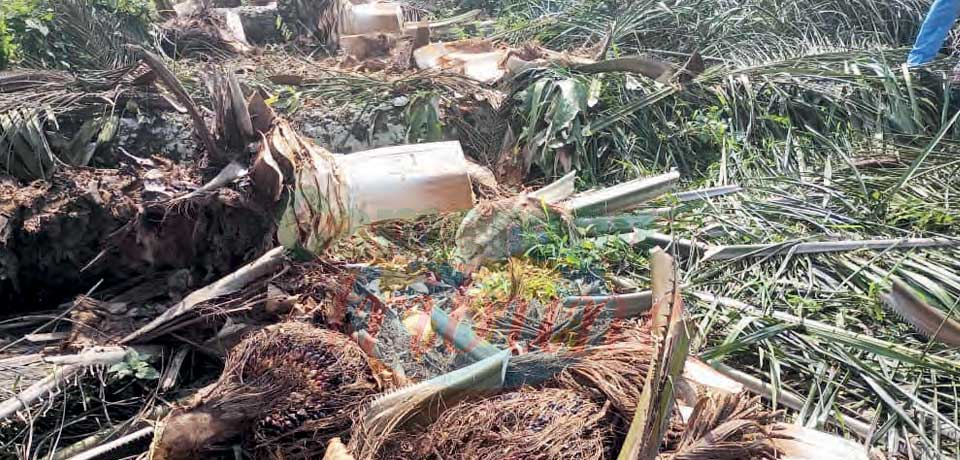
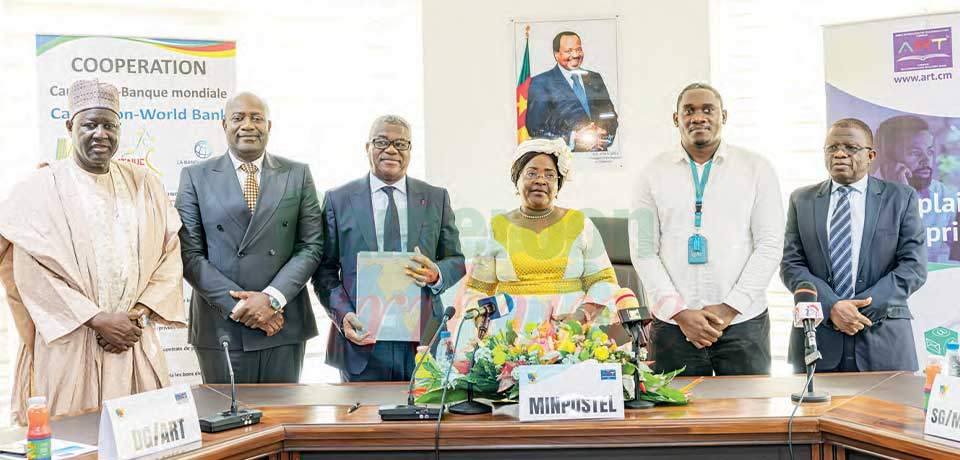
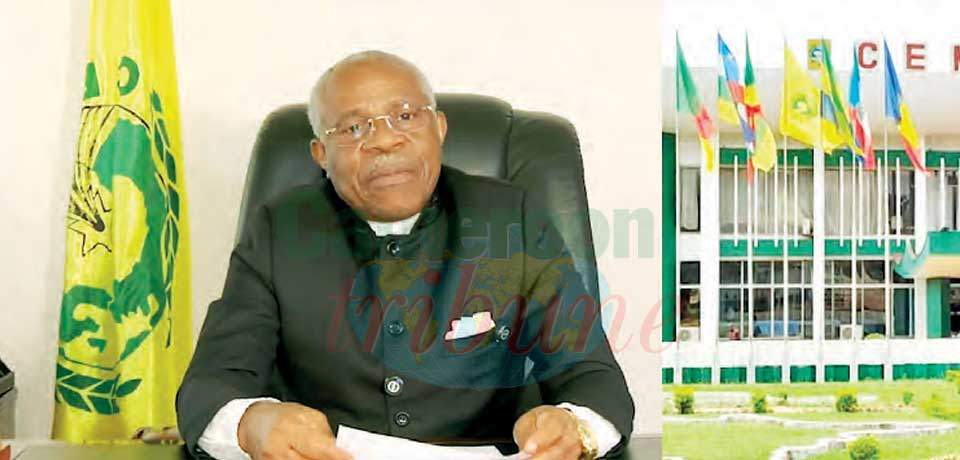
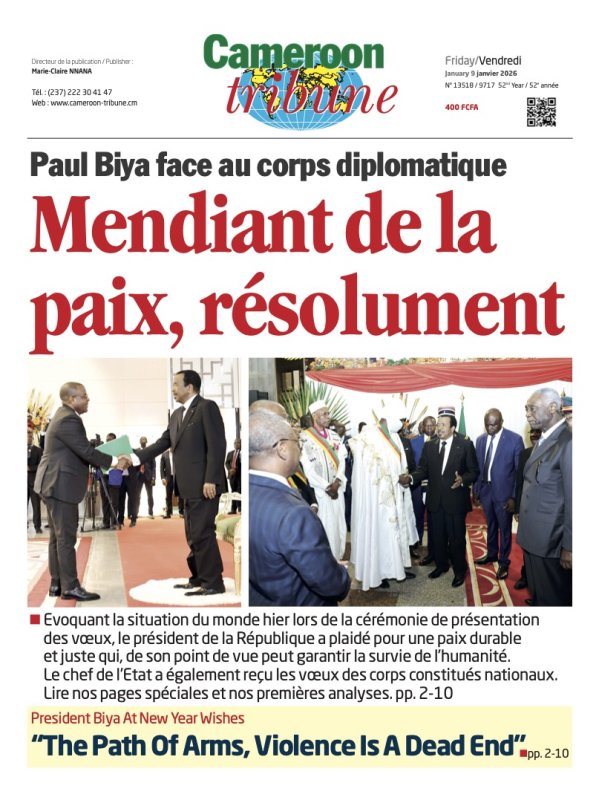




Commentaires